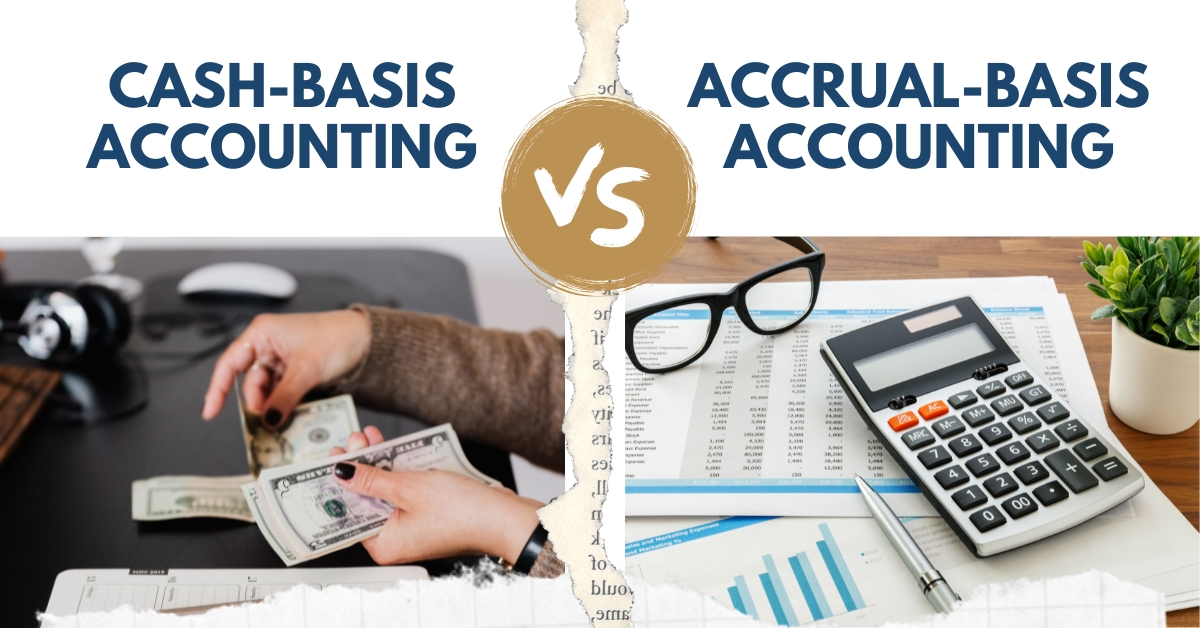In a business, there are various modes, situations, and methods of payment that are adopted for accomplishing a deal or completing a transaction. Hence, business statements have to have various ways of accounting for whatever transactions are done and whenever they are done. When it comes to taking into account income and expenses, there are two accounting systems that firms opt for – cash accounting and accrual accounting.
While cash-basis accounting is opted for when businesses receive or pay actual cash, accrual accounting records the details as soon as the cash is scheduled to be received or paid, though it is yet to be actually received. Before jotting down the difference between cash basis accounting and accrual basis accounting, it is important to understand each of them separately, first.
What Is Cash Accounting?
Cash-basis accounting refers to the system of accounting where a transaction is recorded when the cash changes hands. In short, a cash-in-hand situation makes the flow of money eligible for cash accounting. It does not rely on anticipated cash flows. Instead, it details a flow of cash only when it is either received or paid.
For example, if a firm sells products to another entity on Dec 1 with the latter promising to pay for the items on Dec 15, the former’s business’s cash accounts will reflect the money received only on Dec 15 when it is received and not any time before that.
Cash accounting comes with its own set of pros and cons and to understand its difference from accrual basis accounting, it is important to explore the same. Let us have a look at the advantages and disadvantages of cash accounting systems:
Advantages
The benefits of this accounting system are as follows:
- In cash accounting, you get to see the cash that changes hands and accordingly record the amount in the documents.
- Tracking both income and expenses is much easier as the additions and deductions are instantly reflected in reality.
- Cash management is better with cash accounting as your accounting system.
- No tax is levied on the cash received until they are actually received. Hence, cash accounting will ensure you don’t miss out on paying taxes.
- Cash flow is traceable.
Disadvantages
The risks associated with the cash accounting system are listed below:
- Business liabilities remain hide as they are record only when the debt payments are complete.
- It is not the type of accounting that every business prefers.
- Converting to accrual basis accounting becomes difficult.
What Is Accrual Accounting?
Accrual basis accounting refers to the system of accounting where businesses record income and expenses as and when they occur or get initiate. In this case, it is not necessary to see the cash changing hands. In short, the records here are maintain depending on the anticipate revenues and expenses.
Let’s consider the same example as above. If a firm sells products to another entity on Dec 1 with the latter promising to pay for the items on Dec 15, the former’s business accounts will reflect the entry dated Dec 01 as soon as it occurs or initiates. The firm, in the case of accrual basis accounting, does not wait to receive real cash. It records the transaction as it occurs.
Like cash-basis accounting, accrual basis accounting also has its own set of advantages and disadvantages that businesses must know about before choosing the accounting means suiting their type of business. Let us have a look at them:
Advantages
The pros of this accrual type of accounting are as follows:
- It gives a clear picture of the future revenues and expenses of the firm.
- As there is clarity, most businesses prefer this system over cash-basis accounting.
- Recording the inflows prior to the real receipt of money helps firms take advantage of the tax depreciation plans, given their tax liability is subject to the time the cash inflow is recorded. Thus, firms can save on taxes.
Disadvantages
The cons of accrual basis accounting include the following:
- It involves following strict rules and regulations and is a bit more complex than cash-basis accounting.
- The actual figure is not reflected in the accounts as it records money that is yet to be paid and received.
- Taxes are payable on an income even before the money is receive.
Know What's Best?

Cash-Basis Accounting vs Accrual-Basis Accounting
Now that you clearly have an idea about what cash and accrual accounting are, it’s the right time to proceed with exploring the difference between these two to learn which one would be better for you.
Cash-basis accounting is a system of accounting where the change of hands matter and no promises holds significance. The firms record the cash flow only when they actually leave or enter the accounts. As a result, they are liable to pay taxes only when they have received the amount and not before that. Plus, they reflect the real financial picture of a business, giving an account of how much cash is present or has left the accounts.
On the contrary, accrual-basis accounting is a completely different and more complicated system of recording cash flows. Here, the businesses record the cash flows as and when they occur without the money entering or exiting the accounts in real. The transactions, in this case, occur after they are record in the account books. As a result, the tax liability of the firm needs to be shoulder as soon as the inflows are record irrespective of their real receipt of it from the payor.
Here is a list of difference between cash basis accounting and accrual basis accounting systems at a glance. Let us have a quick look at them:
| Category | Cash accounting | Accrual Accounting |
|---|---|---|
| Record Reflection | When the cash is actually received or paid | When the transaction occurs even when the amount is yet to be received or paid |
| Tax Liability | After the cash receive | Before the cash flows in |
| Complexity | Easy to use and keep records | Stricter rules to follow and complicated than cash accounting |
| Overview | Gives an overview of the present financial scenarios | Offers clarity through reflection of future revenues and expenses |
Which One Is Better – Cash Accounting Or Accrual Accounting?
Going through the above details will surely help you understand which accounting system will suit your business requirements. For a small enterprise, cash-basis accounting might be good as it is less complex and during the budding stage, owners need to get an overview of the money they have in their accounts to meet ad-hic financial commitments. As the business grows, one can shift to accrual accounting as it gives an overview of future revenues and expenses, thereby letting owners prepare for future financial commitments.
Depending on what would suit you and your organization as an owner, make your choice.
If you need professional assistance to have a full-fledged and well-organized cash or accrual basis accounting system, connect with us today. Our accounting professionals are available 24/7 to help and guide you.







